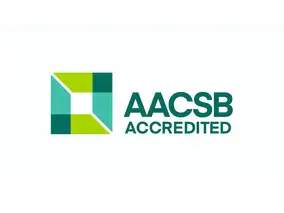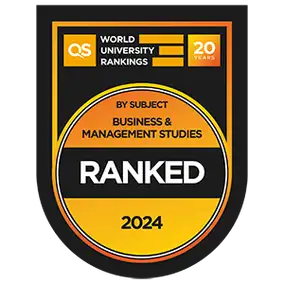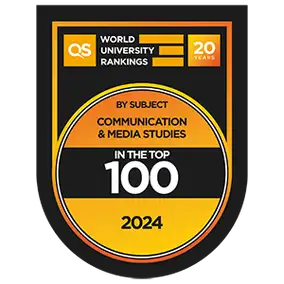Type of qualification
Level of study
An undergraduate qualification is usually the first one you study.
Our courses follow the New Zealand Qualification Framework (NZQF) levels.
Time to complete
Where you can study
International students
International students are not New Zealand citizens or residents.
Study a Diploma in Communication – DipC
A Diploma in Communication can open up employment pathways in the many fields including:
- public relations
- communication management
- arts administration
- event management
- relationship management
- journalism
- web content management
- social media advising
- brand management
- advertising
- marketing/communications executive
- media planning/buying.
Entry requirements
Admission to Massey
All students must meet university entrance requirements to be admitted to the University.
Specific requirements
There are no specific entry requirements for this programme, outside of university admission regulations.
English language requirements
To study this programme you must meet Massey University's English language standards.
Prior learning, credit and exemptions
For information on prior learning, exemptions and transfer of credit or other questions:
- review the Recognition of Prior Learning regulations
- contact us through the Get advice button on this page.
English language skills
If you need help with your English language skills before you start university, see our English for Academic Purposes (EAP) courses.
Official regulations
To understand what you need to study and must complete to graduate read the official rules and regulations for this qualification.
You should read these together with all other relevant Statutes and Regulations of the University including the General Regulations for Undergraduate Degrees, Undergraduate Diplomas, Undergraduate Certificates, Graduate Diplomas and Graduate Certificates.
Returning students
For returning students, there may be changes to the majors and minors available and the courses you need to take. Go to the section called ‘Transitional Provisions’ in the Regulations to find out more.
In some cases the qualification or specialisation you enrolled in may no longer be taking new enrolments, so may not appear on these web pages. To find information on the regulations for these qualifications go to the Massey University Calendar.
Please contact us through the Get advice button on this page if you have any questions.
Structure of the Diploma in Communication
The Diploma in Communication is awarded without endorsement.
If you study full-time, you’ll take 120 credits per year or 60 credits per semester.
Courses and specialisations
Key terms
- Courses
- Each qualification has its own specific set of courses. Some universities call these papers. You enrol in courses after you get accepted into Massey.
- Course code
- Each course is numbered using 6 digits. The fourth number shows the level of the course. For example, in course 219206, the fourth number is a 2, so it is a 200-level course (usually studied in the second year of full-time study).
- Credits
- Each course is worth a number of credits. You combine courses (credits) to meet the total number of credits needed for your qualification.
- Specialisations
- Some qualifications let you choose what subject you'd like to specialise in. Your major or endorsement is what you will take the majority of your courses in.
Credit summary
120 credits
- Course from Schedule A – 15 credits
- Courses from Schedule B – 30 credits
- Courses from Schedule C – 30 credits
- Courses at 200-level or above from Part II of the Bachelor of Communication Schedule – 45 credits
Course planning key
- Prerequisites
- Courses that need to be completed before moving onto a course at the next level. For example, a lot of 200-level courses have 100-level prerequisite courses.
- Corequisites
- Courses that must be completed at the same time as another course are known as corequisite courses.
- Restrictions
- Some courses are restricted against each other because their content is similar. This means you can only choose one of the offered courses to study and credit to your qualification.
Schedule A (Choose 15 credits from)
Course code: 115111 Communication Theory and Practice 15 credits
This course identifies key theories and strategies to enhance written, oral, visual, and interpersonal communication for different purposes and audiences. Students explore, discuss, critique, and practise communication for a business and global environment and recognise how world views, culture, and contexts shape communication.
View full course detailsCourse code: 230111 Tū Kupu: Writing and Inquiry 15 credits
This course introduces students to cultures of writing and inquiry in the Humanities and Social Sciences. It is designed to help students write effectively at undergraduate level by practising a variety of writing tasks, including analytical, persuasive, and research-based writing and argumentation. Students will learn practices of writing, research, peer-review and revision that have application in the university and broader contexts.
View full course detailsSchedule B (Choose 30 credits from)
Course code: 115116 Introduction to Marketing 15 credits
The course provides an understanding of the core concepts and practices of marketing.
View full course detailsCourse code: 219101 Media Skills 15 credits
Understanding and working with the news media combining practical skills with critical and ethical perspectives on media use. Skills include media strategy, writing media releases, broadcast interviewing and running a media conference.
View full course detailsCourse code: 219108 Introduction to Journalism 15 credits
An introduction to the role and function of contemporary news media, with special attention to the role of the journalist in society, the diversity of journalism cultures and basic journalism skills.
View full course detailsSchedule C (Choose 30 credits from)
Course code: 139133 Creative Communication 15 credits
An introduction to the dynamics involved in creative communication. Students explore creative communication through work in, and analysis of, three creative forms: creative writing, theatre and digital media production.
View full course detailsCourse code: 154101 Introduction to Media Studies 15 credits
An introduction to theories of the media and communications. Particular attention will be paid to the concepts of representation and audience, the political economy of media products, and the social and cultural context in which they occur.
View full course detailsCourse code: 172131 Language and Communication 15 credits
An introduction to language with particular emphasis on spoken communication.
View full course detailsFees and scholarships
Fees, student loans and free fees scheme
Your tuition fees may be different depending on the courses you choose. Your exact fees will show once you have chosen your courses.
There will also be some compulsory non-tuition fees and for some courses, there may also be charges for things such as study resources, software, trips and contact workshops.
- Get an estimate of the tuition fees for your qualification
- View a list of non-tuition fees that may be payable
Already know which courses you're going to choose?
You can view fees for the courses that make up your qualification on the course details pages.
Student loans (StudyLink) and Fees Free scheme
You may be eligible for a student loan to help towards paying your fees.
The New Zealand Government offers fees-free tertiary study for eligible domestic students. Find out more about the scheme and your eligibility on the Fees Free website. To use the site's eligibility checking tool, you will need your National Student Number.
Current and returning Massey students can find their National Student Number in the student portal.
- Student loans (StudyLink)
- Fees Free
- Student portal
Scholarship and award opportunities
Search our scholarships and awardsFees disclaimer
This information is for estimation purposes only. Actual fees payable will be finalised on confirmation of enrolment. Unless otherwise stated, all fees shown are quoted in New Zealand dollars and include Goods and Services Tax, if any. Before relying on any information on these pages you should also read the University's Disclaimer Notice.
Accreditations and rankings

Association to Advance Collegiate Schools of Business (AACSB)
Massey Business School is rated in the top 5% of global business colleges by AACSB International.

QS Ranking - Business Management Studies
Massey University is ranked by QS (Quacquarelli Symonds) as one of the top 400 universities for business and management.

QS Ranking - Communication and Media
Massey is ranked by QS (Quacquarelli Symonds) as one of the top 100 universities for communication and media studies. QS is an organisation that ranks universities worldwide in various topics.

ShanghaiRanking - Communication
Communication at Massey is ranked #1 in New Zealand, and 76th in the world, by ShanghaiRanking.
Related study options
Communication – Master of Business Studies
Massey’s Master of Business Studies (Communication) will give you the business and communication skills to take your career to the next level.
Communication – Master of Management
The Master of Management (Communication) focuses on key skills that will increase your business knowledge, to help move your career in a new direction.
Communication Management – Bachelor of Communication
You’ll gain an understanding of the complexities, challenges, and rewards of interpersonal and organisational communication – you’ll be a communication specialist.
Expressive Arts and Media Studies – Bachelor of Communication
This unique degree is for those who love being creative, writing and the performing arts, but also want to discover how the media shape our identities and our world.
Useful planning information

Key information for students
Compare qualifications and academic information across different New Zealand institutions. Learn more on careers.govt.nz